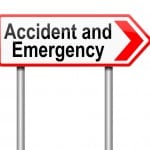Hello and welcome back to our weekly Medical News Summary blog! This week, we’re covering the latest in health and medical news from the 7th to the 13th March, 2016. Today get the latest on the junior doctors row, the seven-day NHS, teen pregnancy and A&E performances.
Junior doctors row explained

At the beginning of last week, the BBC published an article explaining the latest on the junior doctors row, and the reasons behind the dispute. It reports that the row was caused by junior doctors’ leaders objecting to the proposed new contract in England. In general, the junior doctors contract affects recent graduates from medical school as well as medics who have more than 10 years of medical experience under their belts. Currently, the starting salary for a junior doctor is £23k per annum, but doctors can receive extra payments for working unsociable hours, which can easily increase this income to £30k. The new contract proposes that basic pay is to be increased by an average of 13.5% but the definition of unsociable hours is to be changed. Read the article to get full updates linked in the first sentence for full updates.
7-day NHS contracts is just weeks away

Consultants working with NHS England may be offered new NHS contracts in just weeks after constructive negotiations, according to ministers. The ministers wish to get rid of a clause that allows consultants to opt-out of non-emergency care at the weekends in order to make way for the planned “seven-day NHS”. These negotiations are being viewed as a vital to the government in light of the failed negotiations over the junior doctors contracts.
Removing the weekend opt-out for non-emergency care is considered to be a breakthrough step in getting more consultants to work at the weekends, according to the government. However, the BMA says that research suggests that nine in 10 consultants already work at the weekends to some level.
Teenage pregnancy rate has halved since 1998

The rate of conception in under-18s in England and Wales has shown a dramatic decrease, falling 6.8% in just one year. Over the last 16 years in what has been hailed as an ‘extraordinary achievement’, the number of pregnancies among teenagers has been shown to be just 23 in every 1,000 in 2014, compared to 47 out of 1,000 in 1998. Whilst the success has been celebrated, critics warn that disinvestment and complacency over the issue in light of recent figures could lead to a reversal in the trend.
Worst A&E departments in the UK named & shamed

Country’s worst A&E departments have been named as NHS chief calls on them to work harder. NHS chiefs have been speaking to the heads of A&E departments in order to tell them to improve their waiting times. Many hospitals are struggling to meet the targets requiring that 95% of patients are treated within 4 hours. In a crisis meeting with the 30 worst performers, the head of NHS Improvement, Jim Mackey called on chief executives to achieve targets of 85% by mid-2016 and 95% by the end 2017.
Last month, it was reported that at North Middlesex Hospital in Edmonton, North London, A&E staff had told patients to go home and return the next day unless their conditions were life-threatening.
Uploaded by Roya on 14 March 2016
